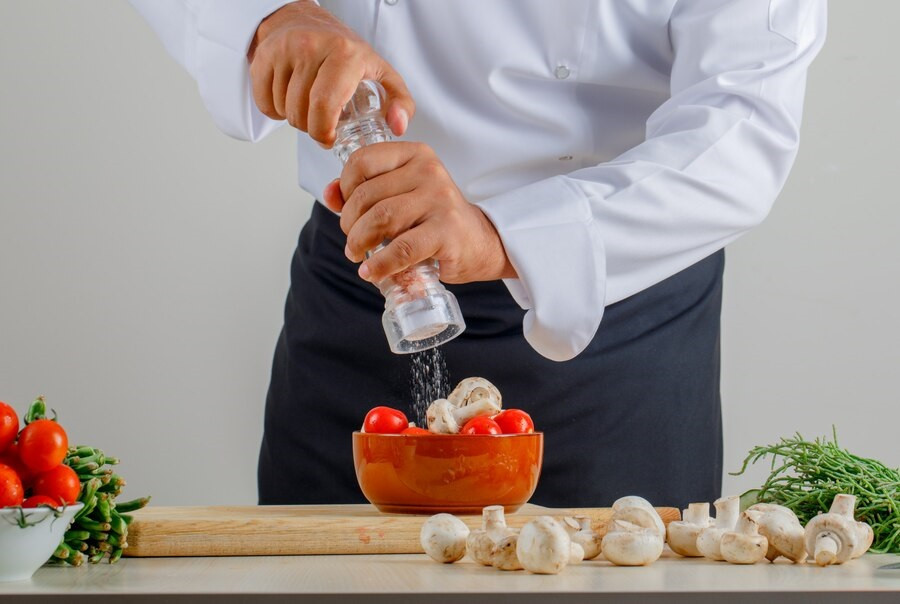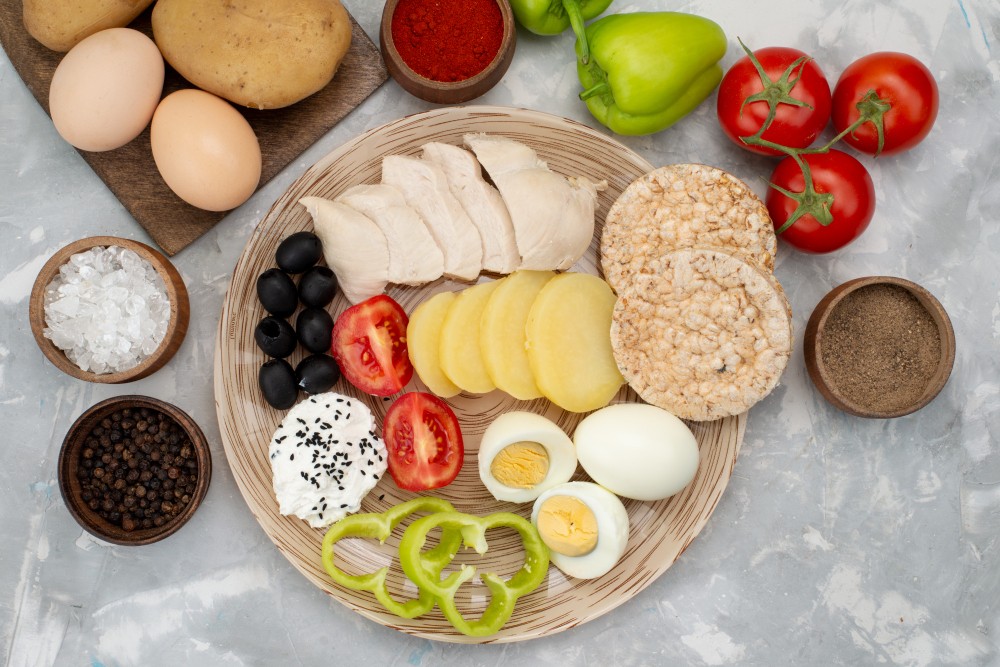Eating food without salt is, of course, tasteless and unpleasant. However, consuming excessive salt can negatively impact health, including high blood pressure, increasing the risk of heart disease and stroke, and causing the loss of calcium from the body. This calcium loss can also cause a decrease in bone density and increase the risk of osteoporosis.
So, how do you reduce your salt intake so you don't overdo it? Check out the tips from the experts reviewed in this article.
How to Reduce Daily Salt Intake
The World Health Organization (WHO) recommends several preventive steps to reduce daily salt intake. Here are ways you can try:
Reduce consumption of processed foods
Processed foods, such as sausages, meatballs, sauces, potato chips, and vegetable chips, are generally made with large amounts of salt. Replace these foods with fresh foods such as carrots, cucumbers, cherry tomatoes, bell peppers, tempeh, and foods cooked at home.
Instant seasoning may also contain high levels of salt. Use fresh herbs such as garlic, shallots, ginger, and other spices to add flavor to dishes without relying on too much salt.
Choose low-salt products
When buying packaged foods, prioritize choosing products with low sodium content, those with less than 120 mg per 100 g. Always check the product's nutrition label to determine sodium and other nutrient content.
Read more: Is It True That Consuming Salt Makes You Fat?
Cooking with little or no added salt
Health experts recommend limiting your salt intake to 1 teaspoon per day. However, you can try using no more than 1/2 tsp of salt daily when cooking. This is an excellent step to reduce your overall salt intake.
At first, you may be a little unused to it. However, over time, your taste buds will adapt to lower amounts of salt and be able to enjoy the natural taste of foods without added salt.
Limit the use of sauces and dressings
Packaged sauces and dressings are high in salt content. Salt in sauces and dressings is used to improve the taste and shelf life of the product, so adding sauces and dressings can lead to excess salt consumption.
Some people may add sauce or dressing to make the food more interesting. To still get the same benefits, you can make your sauces and dressings at home using fresh ingredients and natural spices.
You can also choose sauce or dressing products labelled low sodium or without added salt to avoid consuming excessive salt.
Read more: Risk Adding Mayonnaise Sauce In Your Food
Using spices
Spices can be an alternative seasoning to salt with a wider variety of flavors and health benefits. Some herbs and spices that can be used to add flavor to food besides salt include:
- Pepper
- Turmeric
- Cinnamon
- Caraway
- Ginger
- Garlic and shallots
- Coriander leaves
- Bay leaf
- Candlenut
- Lemongrass
- Tamarind
Apart from the method above, you should also not provide salt at the table so there is no desire to add more salt to the food you want to consume.
These are some important steps to prevent consuming excessive salt. Consuming excessive salt can cause hypernatremia, where sodium levels in the blood are too high. Limit salt intake so that it is not excessive, and ensure that you drink enough water to maintain fluid and electrolyte balance in the body.
If you experience symptoms of hypernatremia, such as extreme thirst, confusion, or unusual muscle weakness, seek immediate medical attention at a hospital.
If you need medical advice or consultation, you can either visit a doctor or use the consultation features available in the Ai Care application by downloading the Ai Care application from the App Store or Play Store.
Looking for more tips and tricks for health, first aid, and other home treatments? Click here!
- dr. Monica Salim
WHO (2023). Sodium reduction. Available from: https://www.who.int/news-room/fact-sheets/detail/salt-reduction
Harvard TH Chan (2023). Salt and Sodium. Available from: https://www.hsph.harvard.edu/nutritionsource/salt-and-sodium
Marsha McCulloch, MS, RD (2023). 30 Foods High in Sodium and What to Eat Instead. Available from: https://www.healthline.com/nutrition/foods-high-in-sodium
Mayo Clinic (2023). Sodium: How to tame your salt habit. Available from: https://www.mayoclinic.org/healthy-lifestyle/nutrition-and-healthy-eating/in-depth/sodium/art-20045479
NHS UK (2023). Salt in your diet. Available from: https://www.nhs.uk/live-well/eat-well/food-types/salt-in-your-diet/
Suzana Shahar, et all (2019). Sodium content in sauces—a major contributor of sodium intake in Malaysia: a cross-sectional survey. Available from: https://www.ncbi.nlm.nih.gov/pmc/articles/PMC6538051/
Lizzie Streit, MS, RDN, LD (2020). 18 Flavorful Salt Alternatives. Available from: https://www.healthline.com/nutrition/salt-alternatives
WebMD (2023). What Is Hypernatremia?. Available from: https://www.webmd.com/a-to-z-guides/what-is-hypernatremia











